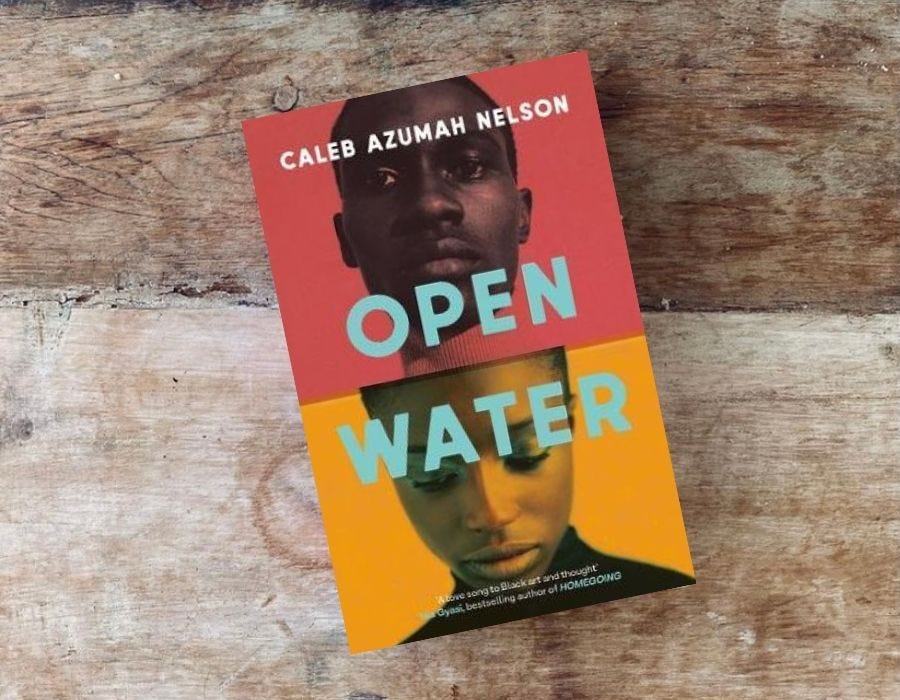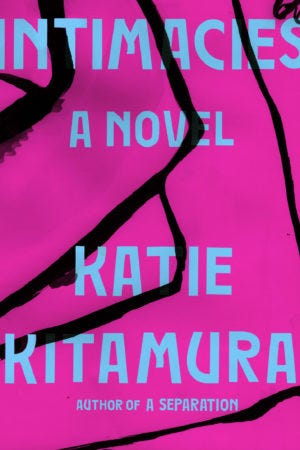Interesting But Nothing Happens
Inspired by a bad review of a brilliant book I put the case for less action and more thought!
Thank you for reading the JasonWard Creative Substack - Apologies that I am a little late publishing this week but I am in the middle of a house move from the UK to Ireland. I hope you enjoy this week’s piece and I would love you to become a subscriber. Subscription is currently free of charge and having you along would mean so much. This week’s article was inspired by a bad review of a great book that said “interesting but nothing happens”. I look at wonderful books by Caleb Azumah Nelson, Katie Kitamura and John Le Carre’ to examine where the action really is. Thanks for your time!




Caleb Azumah Nelson has become one of my favourite writers. His insight and the beauty of his writing take stories that to many people are everyday and serves them as impactful and shocking accounts of inequality in British society. His focus on South London and on the specificity of the West African immigrant experience might seem like an overly niche place to start but it is the tight focus that makes his books universal.
The universal that I mean is the same as Dickens used: if you are living the life of a first or second generation immigrant (and especially if your skin is black or brown) then you probably have some shared experiences. If you do not identify as a recently immigrated person (and especially if you are white) then the universality comes from recognising the privileges you have and how your privileged life intersects with those who are at the mercy of the system. Dickens didn’t need to spell out that there were inequities and inequalities in society and neither does Nelson. Both writers show them clearly, brutally and unflinchingly through their creativity and writing style.
In Open Water, Nelson’s first novel, he shows us what it is like to inhabit a body but not to have agency over it. There are no risk free encounters with authority. If your skin is darker the police can choose to own your body at any time they want in a way that is dehumanising, degrading and frightening. In this circumstance how can you fall in love? How can you give yourself 100% if you never feel that you own yourself 100%?
And this is how Caleb Azumah Nelson makes his point. If you belong somewhere then you have freedom in that place to live and to love, to walk around without fear of harassment or internment. Nelson shows us that the truth for black or brown people is different. We see that there is a strong current to swim against every time in order to get to the shore. It is tiring and unfair. And for black men it is especially difficult because you are seen as black, as a ‘black guy’, as a black body and that brings with it a range of expectations and prejudices. In this circumstance how can you be vulnerable enough to love and be loved? Nelson shares another trait with Dickens which is writing in the second person in order to immerse us more deeply in the characters’ life. For Nelson this places us with the writer in South London, in the police station, in the chicken shop and in the emotion of the piece.
Nelson diverges from Dickens by not writing an epic. Open Water is 200 pages of immensity which is about the length of a Dickens chapter! There is no sweeping story of several lifetimes in Open Water - at least not directly. It retains its concentration on one year in the life of one couple and achieves the same powerful social commentary as a book four or five times its length.
If you asked me what happens in Open Water, it would be easy to say that it is a simple boy meets girl love story. It is not an action packed thriller - although there is action and there are thrills. It is the thoughts and experiences of the characters that engage rather than their actions. The main, male, character is constantly developing his thoughts and responses to the world.By sharing this evolution in the second person we are also changed.
I recently read an interview with Nelson in which he recommended a book called Intimacies by American writer Katie Kitamura. I am in the middle of moving house and living out of a small suitcase for several months so have no room to carry books. As a result I wanted some good reads for my Kindle so I followed Nelson’s recommendation and downloaded Intimacies. I loved the book so much I went on to download another of her books: A Separation.
Intimacies is a story about a female translator at an international war crimes court and, in the book, all the ‘happening’ happens offstage. Action, from a street mugging to war crimes, is referred to but never described. What Kitamura beautifully and elegantly describes is the effect this action has on the lead character. How translating details about war crimes, and being in the room with a man accused of war crimes unbalances a person. As in Open Water there is a dehumanising effect that makes it difficult for the lead character to pursue a healthy romantic relationship. In this case those who work in and around the court have a stand alone culture that condones certain relationship behaviours and normalises the abuse of power in relation to romance, sex and love. It is much like the culture onboard cruise ships where crew members have ship husbands and wives, and quid pro quo relationships based on abuse of power abound.
Both Intimacies and A Separation are exceptionally written books and both have been described as lacking action. This comment is to miss the point of both books completely because action does not have to be external. Both authors, Kitamura and Nelson, made me think and consider my own opinions and my own actions as I responded to the characters’ thoughts and emotions.
I was reminded of something that Sir Tim Rice says in his BBC Maestro series about writing musical theatre: each song must either advance the plot or develop character. In the best written books and shows the advancing of the plot will also develop character and vice versa. However, neither form NEEDS to have a Dickensian plot or a Guys and Dolls structure. In Sondheim’s Company it is Bobby, the lead character’s, development that propels the show as they observe and experience different types of relationships. At the end they are encourages to add ‘em up Bobby’ and we see their breakthrough realisation about love and relationships in the song Being Alive. But what actually happened in Company?
The writer who best combines the action and character is the late John Le Carre’ - especially in the George Smiley books. There is intense intellectual and emotional examination of the lead character interspersed with incidents of Cold War spying action. As Smiley’s character develops over time we feel how the double life, the half truths and the futility of his work act on his person and how this changes him.
In all these cases we are granted access into the mind of the characters. If Kitamura’s character spends a page analysing how she was addressed by a hotel receptionist this is fine because she is a character out of her comfort zone and learning -as are we. If Caleb Azumah Nelson has his character think about how his mother came from Ghana to London and meditate on what it means to have a foot in the UK and one in West Africa this is great because the writer is sharing a viewpoint and the result of intellectual effort to help us better understand his character and his world.
And if at the end of Company Bobby realises that “alone is alone not Alive” then some of us are happy for him for making the discovery and some of us are happy for ourselves because he helped us make the discovery with him.
A book is like the song in Tim Rice’s example: either developing a plot or developing a character. But there is often an expectation that a book, a movie or a show must do both and have a good splash of action to keep us engaged . Sometimes, however, the best action is the story of what’s going on inside our heads.
There are over 70 articles, playlists and podcast to enjoy on The JasonWard Creative Substack. Subscribe here to enjoy them and support my work. Thank You!
If you missed last week’s piece about an Ai generated Duran Duran musical you can check it out here:
The Union of the Snake - The Duran Duran Musical by Me and Chat GPT
Thanks for checking out the Jason Ward Creative Substack. I hope you enjoy this piece about an experiment I ran using my favourite band (Duran Duran) and favourite art form (musical theatre) and combined them with the power of ChatGPT. If you want to support my work I would love to welcome you to the JasonWard Creative Substack community where subscript…







Loved the article and you made want to read those books!